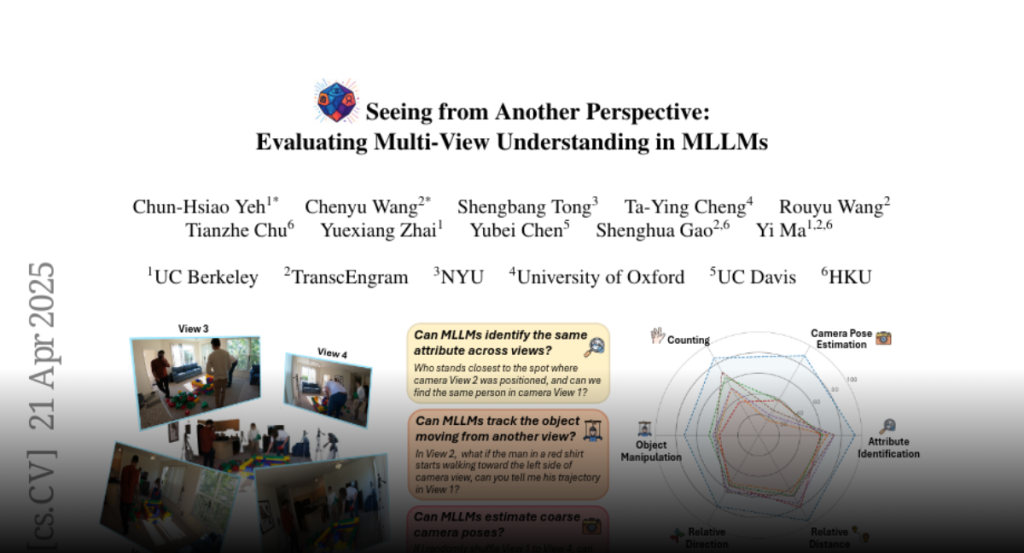Multi-view understanding, the ability to reconcile visual information across
diverse viewpoints for effective navigation, manipulation, and 3D scene
comprehension, is a fundamental challenge in Multi-Modal Large Language Models
(MLLMs) to be used as embodied agents. While recent MLLMs have shown impressive
advances in high-level reasoning and planning, they frequently fall short when
confronted with multi-view geometric consistency and cross-view correspondence.
To comprehensively evaluate the challenges of MLLMs in multi-view scene
reasoning, we propose All-Angles Bench, a benchmark of over 2,100 human
carefully annotated multi-view question-answer pairs across 90 diverse
real-world scenes. Our six tasks (counting, attribute identification, relative
distance, relative direction, object manipulation, and camera pose estimation)
specifically test model’s geometric correspondence and the capacity to align
information consistently across views. Our extensive experiments, benchmark on
27 representative MLLMs including Gemini-2.0-Flash, Claude-3.7-Sonnet, and
GPT-4o against human evaluators reveals a substantial performance gap,
indicating that current MLLMs remain far from human-level proficiency. Through
in-depth analysis, we show that MLLMs are particularly underperforming under
two aspects: (1) cross-view correspondence for partially occluded views and (2)
establishing the coarse camera poses. These findings highlight the necessity of
domain-specific refinements or modules that embed stronger multi-view
awareness. We believe that our All-Angles Bench offers valuable insights and
contribute to bridging the gap between MLLMs and human-level multi-view
understanding. The project and benchmark are publicly available at
https://danielchyeh.github.io/All-Angles-Bench/.

